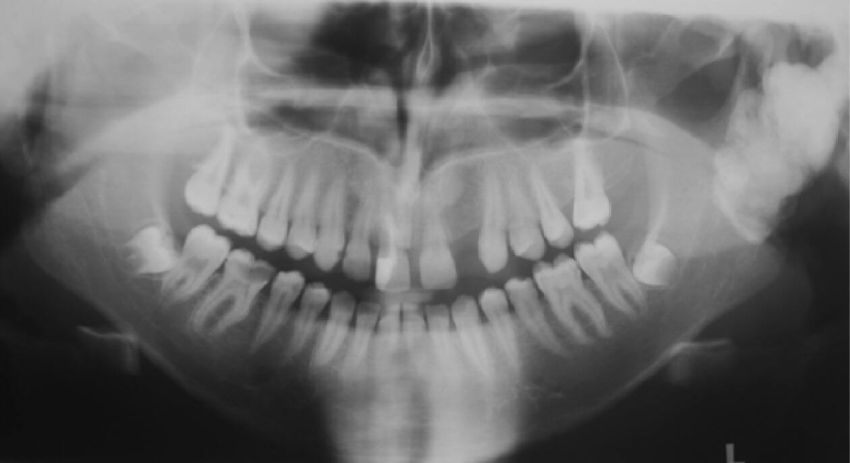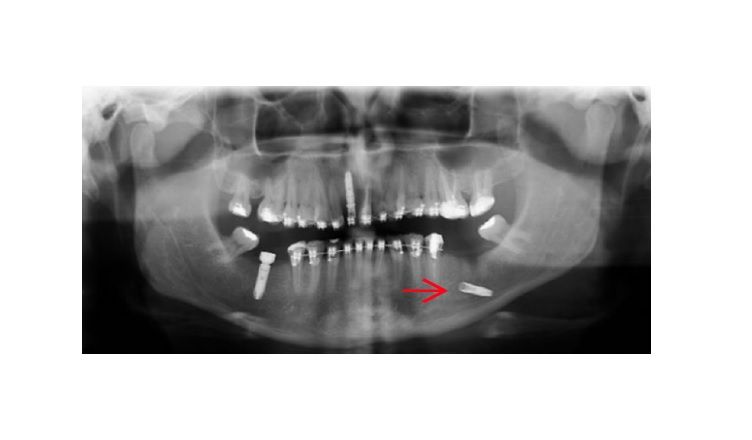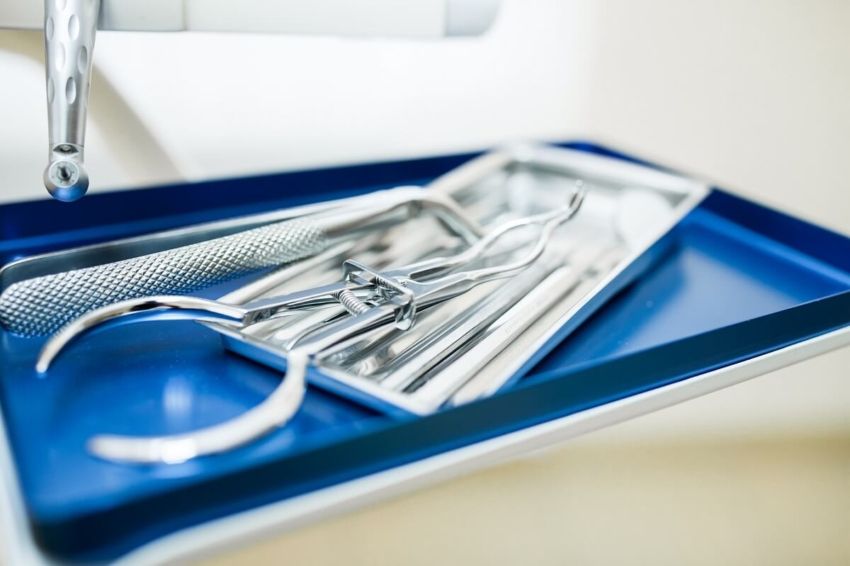When food hurts… or a few words about oral pain
Discomfort while eating, tongue pain, or a burning sensation are among the many causes of oral pain that each of us has faced in our lives. What can cause such symptoms? Oral pain has many possible causes, including injuries, wounds and some diseases. It is important to be able to assess when it is necessary to see a specialist. You can find out in the following article.
What can cause mouth pain?
Pain in the oral cavity can occur in many places: on the palate, inside the cheeks, on the gums or tongue. Below we have listed some general causes of oral pain:
– Injuries: You may be experiencing pain in your mouth due to an injury caused by an accident. For example, if you trip and fall, you may bite your lip or the sides of your cheeks. This can cause pain and tenderness inside the mouth. You can also injure your mouth by biting into food that is too hot. It can burn the palate.
– Dry mouth: Your salivary glands produce saliva, which keeps the mouth moist. When these glands do not produce enough saliva, it can cause dry mouth. Chronic dry mouth can cause ulcers and burning in the mouth. What can be the causes of dry mouth? It is often caused by dehydration. Another cause may be the intake of certain medications or chronic conditions, such as. diabetes.
– Aphthas: Aphthas are a small type of ulceration that can be seen inside the cheeks, around the tongue or in the back of the palate. These are white lesions with a red border. Aphthas can be caused by many factors. They arise, for example, due to food sensitivities, vitamin deficiencies, viral infections, hormone fluctuations. Some ulcers can be very painful, and you may feel a tingling or burning sensation before they appear.
– Herpes simplex virus: Herpes simplex virus (HSV) is the virus that causes herpes. At first it is associated with painful lesions on the outside of the lips. However, carriers of this virus know that lesions can also develop on the tongue, gums and throat. As with afts, before a wound appears, you may feel a burning sensation in that area. Other symptoms of herpes also include sore throat, swollen lymph nodes, fever or even muscle aches. It is worth mentioning that with recurrence, the symptoms are less severe. In addition to HSV, many other viruses and bacteria can cause oral diseases. Some of the most common are: chickenpox, hemiplegia, hand, foot and mouth disease, human immunodeficiency virus (HIV), infectious mononucleosis, syphilis.
– Oral thrush: Oral thrush is a fungal infection caused by Candida albicans. A weakened immune system and chronic diseases are primary risk factors for thrush. Oral thrush can appear as creamy, painful lesions in many places in the mouth, including the cheeks, palate and tongue. Sometimes they can bleed.
– Oral lichen planus: Oral lichen planus is a lesion that can develop on the inside of the cheeks, gums or tongue in the form of white patches, red swollen areas or even wounds. Usually this condition is painless, but in some cases it can lead to irritation. The cause of oral lichen planus is not known, but it seems to be related to the immune response
Why our gums hurt?
Certain types of ulcers and diseases can also affect the gums. But there are also other causes of their pain.
– Improper oral hygiene: One of the more common causes, which we may not be aware of, is improper oral hygiene. Although maintaining good oral hygiene is important, let's do it gently. The American Dental Association recommends using a toothbrush with soft bristles.
– Hormonal changes: Sometimes a change in hormones can affect the gums and cause them to become irritated. It happens more often in women, especially during puberty, menstruation, pregnancy, use of oral contraceptives or menopause. Sinus infection
– Sinus infection: Sometimes a sinus infection can cause tooth and gum pain. Most often it happens around the upper teeth.
– Gum disease: Gum disease is caused by a buildup of plaque, which causes swelling and tenderness of the gums. Early gum disease is called gingivitis, while the more advanced form is called periodontitis. Symptoms of gum disease can include: swollen, painful or even bleeding gums after brushing or flossing, so-called "sore gums. loose teeth.
– Tooth abscess: A tooth abscess occurs when a purulent pocket develops around the tooth. The cause is always a bacterial infection. If you have a dental abscess, you will experience pain around the affected tooth, which may worsen when chewing and also when eating heavily cooled food. If the condition is already very serious, there may be facial swelling and fever.
What can cause pain on the tongue or under the tongue?
Many of the conditions we've already discussed can also affect the tongue or the area underneath it, including: aphthas, infections such as: HSV and hand, foot and mouth disease or oral lichen planus. Below are other causes of tongue pain:
– Nutritional deficiencies: Sometimes a deficiency of certain nutrients can cause swelling or pain in the tongue. The most common deficiencies in this case are iron, vitamin B12, folate.
– Geographic tongue: Geographic tongue is a condition characterized by red patches on the tongue, which can vary in shape and size and may change over time. In some cases, they can be unfortunately painful. The exact cause of the geographic tongue is unknown.
– Burning mouth syndrome: People with burning mouth syndrome experience a burning or tingling sensation in the mouth, tongue and, less commonly, palate. mouth. The pain caused by burning mouth syndrome can vary from person to person. In some people, pain can come and go. In other cases, it can be permanent. Some people find that eating or drinking relieves the discomfort.
– Salivary gland stones: Stones can form in the salivary glands and block the flow of saliva into the mouth. These stones can develop in the salivary glands under the tongue or on the sides of the mouth. People with salivary gland stones may experience oral pain or swelling that comes and goes. It is unclear exactly what causes stone formation, although there are factors that can increase the risk of stone formation, such as dehydration, certain medications (such as. blood pressure medications and antihistamines). Another reason may be insufficient food intake during the day. You don't eat enough, so you produce less saliva as a result
– Neuralgia: A specific type of neuralgia called lingual-pharyngeal neuralgia can cause attacks of severe pain that can involve the tongue, throat and tonsils. Pain can occur while eating, coughing and even speaking. Usually lasts a short time, from a few seconds to a few minutes. The pain may last only a few seconds or a few minutes. Lingual-pharyngeal neuralgia is believed to be caused by irritation of the lingual-pharyngeal nerve, one of the 12 cranial nerves.
Treatment options
While you're waiting to see the dentist, it's a good idea to reach for home options to help ease your oral pain and discomfort. Before reaching for oral medications, it is worth checking whether topical treatment will not be sufficient. A mouthwash medication available at pharmacies is Glimbax, which contains the anti-inflammatory and painkiller diclofenac. Thanks to the form of the liquid, you are able to reach every part of the mouth without causing additional irritation. In addition, the drug penetrates well through the mucosa in inflamed areas. As an added benefit, there are no side effects that so often accompany taking oral medications. You can additionally apply ice to the affected area. If the pain is due to irritation and wounds in the mouth, avoid spicy, sour or salty foods, which can further aggravate the lesions. Also increase the amount of fluids you drink, especially if you notice dry mouth. Avoid smoking and the use of tobacco products. Gently brush and floss your teeth and continue good oral hygiene.
When it is necessary to visit the dentist?
Be sure to visit your doctor or dentist if it gets you:
– Pain that is severe and cannot be controlled at home
– Pain that causes difficulty eating, drinking or swallowing
– persistent tooth or gum pain
– Mouth ulcers that are large do not disappear or return
Remember! Pain in the oral cavity can have many causes. You may feel pain not only in the inner, upper or back part of the mouth, but also around the tongue or gums. You can take steps to relieve mild oral pain by taking topical or oral over-the-counter medications. However, if you are experiencing severe, persistent, recurrent oral pain, or if the pain persists despite treatment, consult your doctor or dentist.



